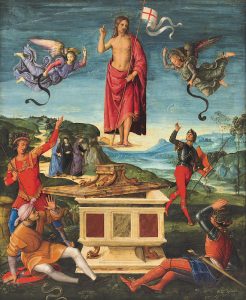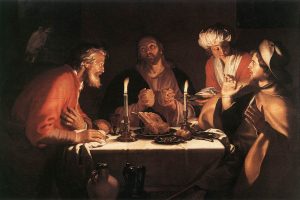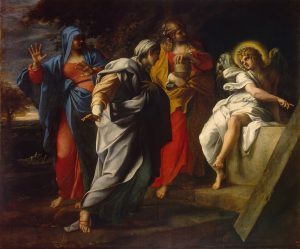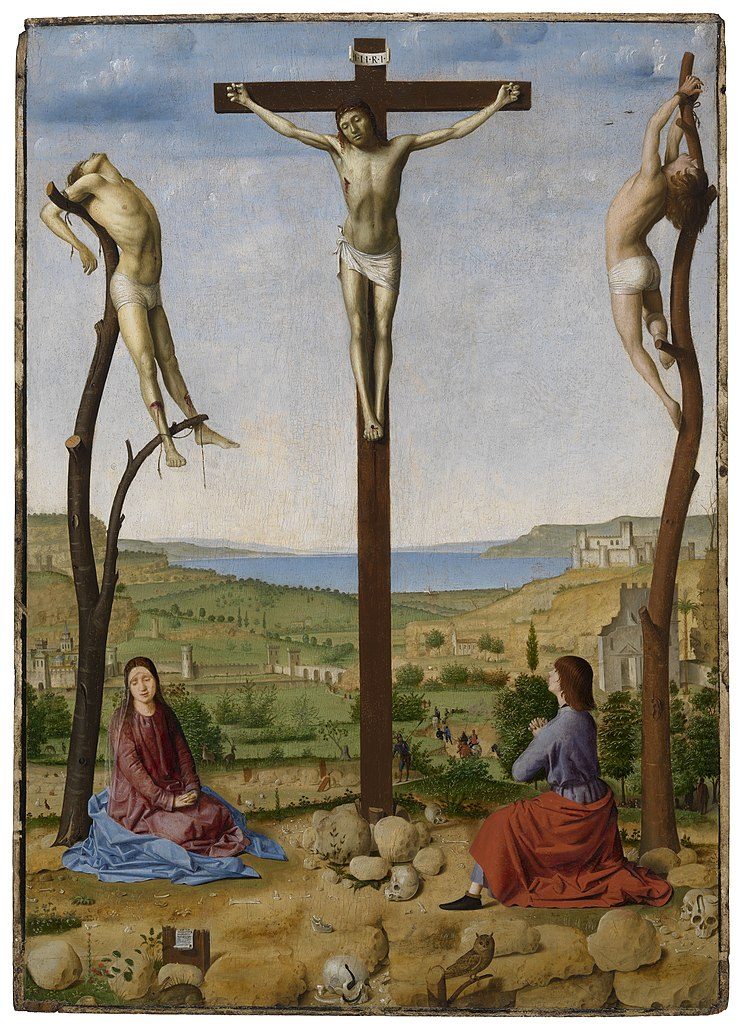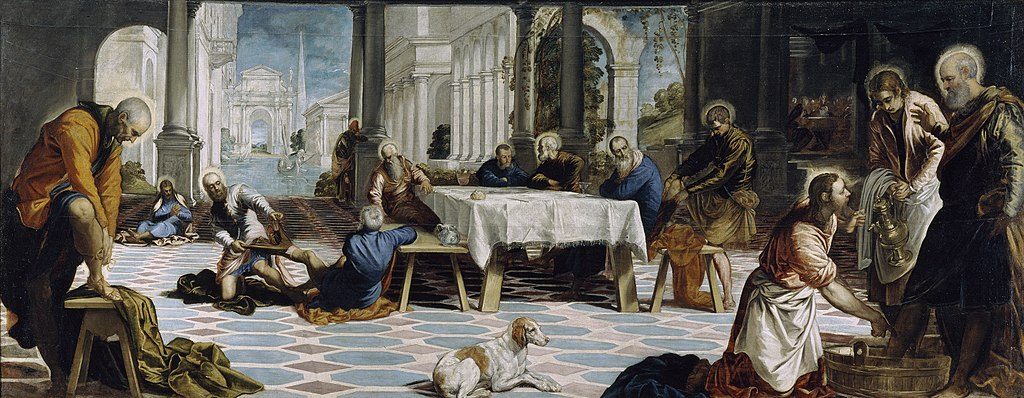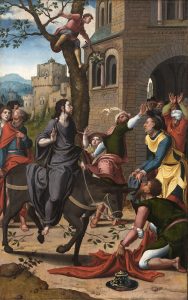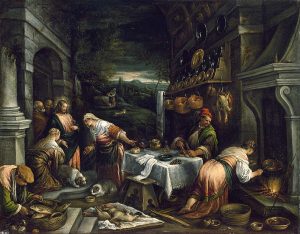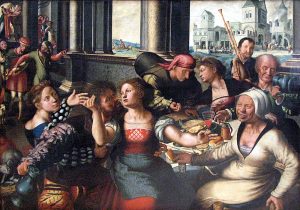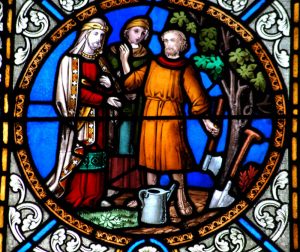First Reading: Acts 5:27-32
Jesus has died and Christ has risen, but tension continues between the Christ-followers and the Temple establishment.
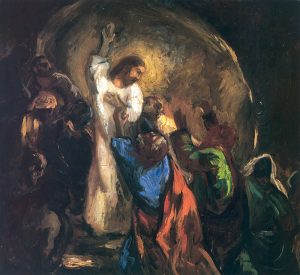
Doubting Saint Thomas. Oil painting on canvas by Béla Iványi-Grünwald (1867-1940). Hungarian National Gallery, Budapest. (Click image to enlarge.)
The apostles have been carrying on the work of Jesus. They teach, they preach, and they heal, and all the excitement got the authorities worried that this uproar could cause trouble with the occupying Roman forces. They locked Peter and the apostles in jail, only to have an angel set them free. Now, in Sunday’s reading, they scold them. But the apostles push back, saying that they have a higher mission: God has given them the Holy Spirit and called them to spread the Word, a mission that trumps human authority.
Psalm: Psalm 118:14-29
Do some of these words sound familiar? Sunday we hear again some of the same verses as we sang in Easter Sunday’s psalm, and on Palm Sunday, too! This is no coincidence, as these words are meaningful as we remember the Resurrection: Once again we promise to practice justice in our lives, to serve God, our neighbor, the poor and the stranger, seeking through righteousness to enter the glory of God. Then, in the verses chosen for Sunday’s portion of the Psalm, we go on to address God directly, giving thanks for God’s abundant love, our lives and our salvation.
Alternate Psalm: Psalm 150
We chant, sing or read a Psalm just about every time we gather to worship. The 150 Psalms cover a range of emotions, from pleas for help to calls for God’s blessing to anguished songs of lamentation. Psalms beg forgiveness, express hope, even call down God’s wrath. But the most joyful Psalms sing God’s praise, and Psalm 150, the hymn of joy that ends the book, musters a virtual orchestra to proclaim God’s glory with flutes and harp, strings and cymbals. Sing out loud as Eastertide and the celebration of the resurrection goes on.
Second Reading: Revelation 1:4-8
Many Christians find Revelation hard to understand, even weird and scary, with its visions of lakes of fire, dragons, horsemen riding through rivers of blood … the number of the Beast! Revelation was written in the apocalyptic genre, a form of First Century sci-fi and fantasy that used symbolic language and colorful metaphors to reassure the early Christians in seven persecuted cities in Asia Minor that the Reign of Christ was still to come and would set them free. Christ is “the ruler of the kings of the earth,” it promises, and knowing readers understood that Christ would eventually dominate even the Emperor of Rome.
Gospel: John 20:19-31
In John’s version of the resurrection, Mary Magdalene alone saw the risen Christ. But after she ran back to tell the other disciples, it appears that they did not react immediately with celebration. Rather, as Sunday’s Gospel begins, they have locked themselves securely indoors, apparently afraid that the Jewish leaders who had supported Pilate when he condemned Jesus were trying to find them. Suddenly Jesus appears in the locked room with them! He shows them his wounds and offers them peace and breathes the power of the Holy Spirit into them, and their fear turns into joy. Thomas, who wasn’t with the apostles that night, remains doubtful. He insists on proof before he will believe. But Thomas, too, turns from doubt to belief when he sees Jesus.

